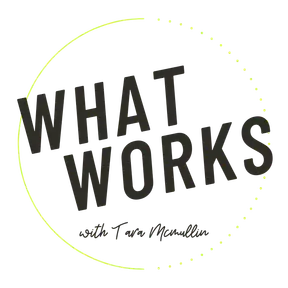EP 405: What causes work stress? And what can we do about it?
While the answer might seem obvious, understanding how work creates stress and help us design more sustainable work systems.
Everyone experiences work stress from time to time. But some of us experience persistent work stress—even though we have more "tools" for reducing stress than ever before.
If you've experienced work stress this year, there's a good chance you're thinking about how you can create the conditions for less stress in the new year. So today, I'm exploring how psychologists understand what kinds of work create more stress, what conditions reduce stress, and how we might intentionally design our work to be more sustainable.
Note: In the last third of the episode, I use a swear word (commonly abbreviated B.S.) to reference a book & theory by David Graeber. It's the name of the theory... so I use it a lot. If you'd rather not hear it, stop the episode around 17:45. You'll still get most of the message!
Footnotes:
If you've experienced work stress this year, there's a good chance you're thinking about how you can create the conditions for less stress in the new year. So today, I'm exploring how psychologists understand what kinds of work create more stress, what conditions reduce stress, and how we might intentionally design our work to be more sustainable.
Note: In the last third of the episode, I use a swear word (commonly abbreviated B.S.) to reference a book & theory by David Graeber. It's the name of the theory... so I use it a lot. If you'd rather not hear it, stop the episode around 17:45. You'll still get most of the message!
Footnotes:
- Creating Sustainable Work Systems: Developing Social Sustainability (2008)
- Chapter: "Sources of work intensity in organizations" by Armand Hatchuel (2005)
- Demand-Control Theory
- Job Demand-Resource Model
- The Office (US Version)
- B***S*** Jobs: A Theory by David Graeber
Looking for a great gift for your clients, colleagues, or team members? How about my new book, What Works? It's a great way to spread the message that we don't have to do things the way they've always been done. And you can provide a little relief when it comes to all that "New Year, New You" garbage. Grab your copy here!
Essay versions of each podcast episode are released every Thursday. Get them delivered straight to your inbox by subscribing here—free of charge.
Essay versions of each podcast episode are released every Thursday. Get them delivered straight to your inbox by subscribing here—free of charge.
Reviewing the past year and planning for next
If you’re listening to this close to its air date, you’re probably thinking about how this year went and what you’d like to tackle in the next year. I suggest including a review of the demands of your work, the autonomy you allow yourself, and the resources you have at your disposal:
- Does your work present challenges that motivate you to learn and think creatively?
- Are those challenges met with an appropriate level of autonomy and sufficient resources?
- In what ways do you deny yourself flexibility in the way you work?
- How does flexibility (or lack thereof) impact how you meet the challenges of your work?
- What resources would allow you to challenge yourself in new ways?
- What challenges would you like to take on in the new year?

